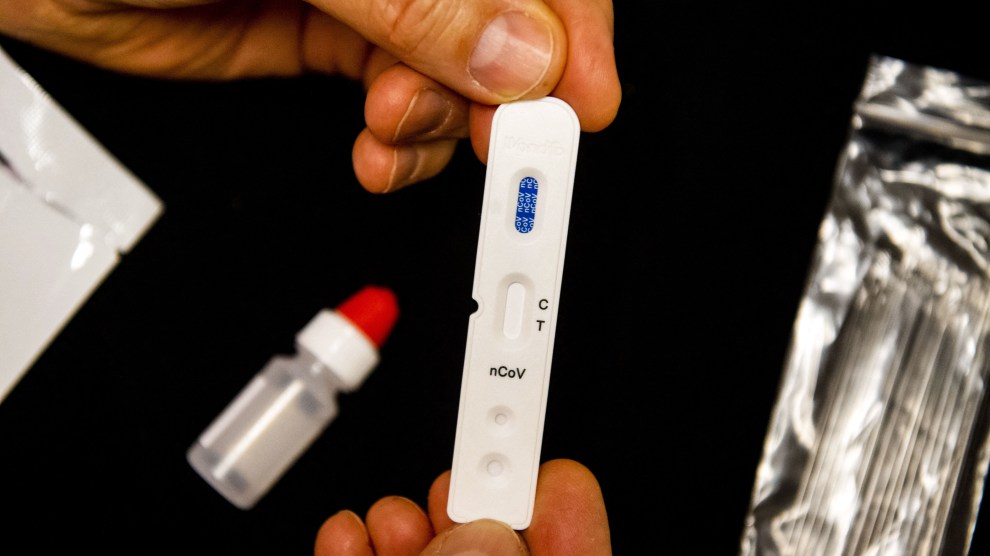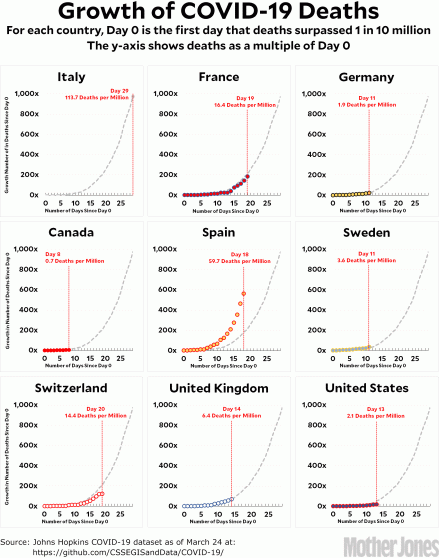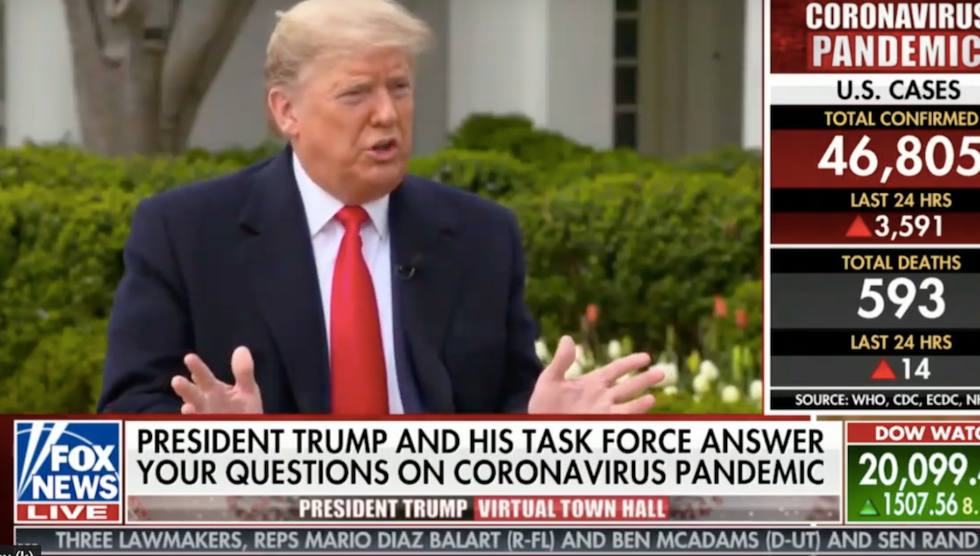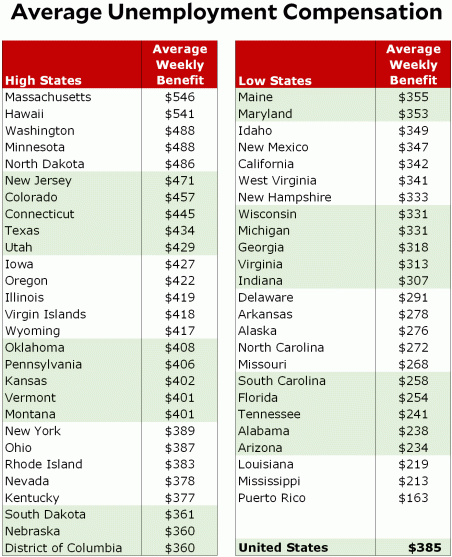
A COVID-19 rapid test.Hollandse-Hoogte/ZUMA
On the frontlines of the coronavirus pandemic, there’s a dire shortage of supplies and a deadly surplus of bad information.
“There’s so many conspiracy theories and false information that’s out and about on the internet,” says Dr. Rob Gore, an emergency room physician at a hospital in Brooklyn. “That’s coming from people’s own insecurities, but not from people who are physically in there.”
Gore talked to Jamilah King on the Mother Jones Podcast about his experiences working in Brooklyn. New York City has become the epicenter of the coronavirus pandemic. There are more than 25,000 cases in New York State so far, with more than 200 dead. Cases are surging by about 5,000 a day, a number that is sure to rise. Thirteen percent of New York’s COVID-19 cases have required hospitalization, and about a quarter of the people hospitalized have wound up in the intensive care unit. If this continues, Gov. Andrew Cuomo said New York City will need 140,000 hospital beds. Right now, there are 53,000.
Gore has been using his Instagram account as a platform to share what’s happening on the ground in hospitals. He wants people to know that this needs to be taken seriously.
“I’ve admitted people to the intensive care unit from it. I’ve hospitalized a bunch of people for it. I have personal friends who have been hospitalized for it as well,” he says. “So I can give a very different perspective of it.”
King also talked to Dr. Michael Brumage, the medical director of Cabin Creek Health Systems in Kanawha County, West Virginia.
West Virginia has 20 reported cases of COVID-19, up from eight reported cases late last week. Brumage is seeing critical shortages in N95 respirators and tests, which will only worsen as the coronavirus spreads to rural areas.
“I come from Fairmont, West Virginia, and two days ago they closed a 207-bed hospital in the middle of the pandemic,” he told the Mother Jones Podcast. “Combine that with the overall illness of our population, and we are at a very high risk.”
Brumage thinks the shortages call for drastic steps. He wants the government to pass wartime measures that would mobilize American industries to produce, among other things, as many N95 respirators as they can.
“We claim to have the best healthcare system in the world. But this system is now failing the people on the frontlines,” says Brumage. “The system was not designed to manage a pandemic, even though we know pandemics are coming.”


















